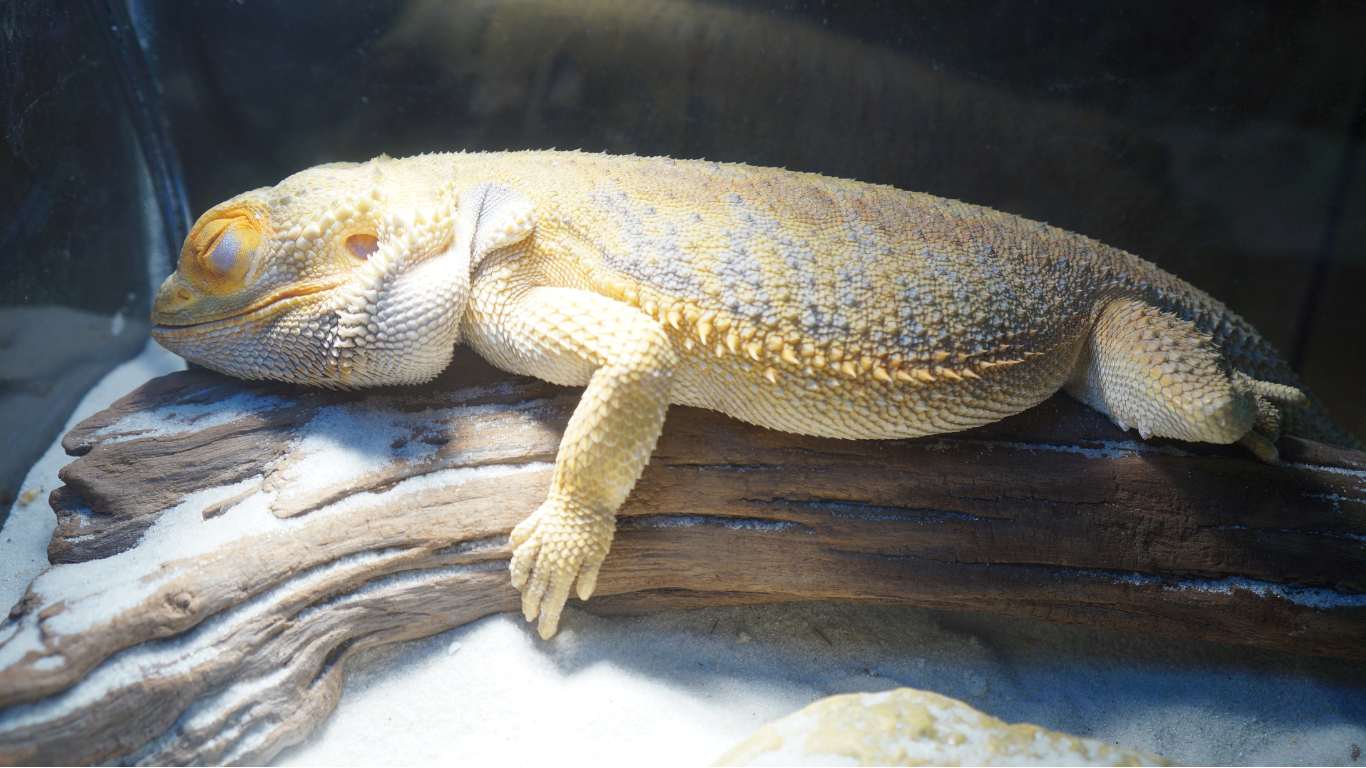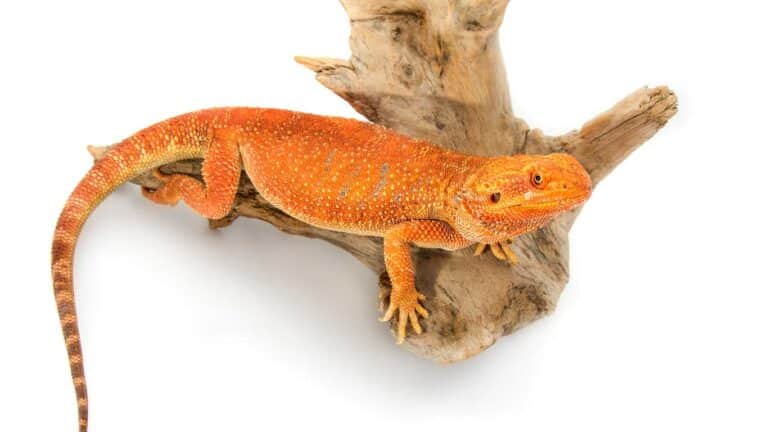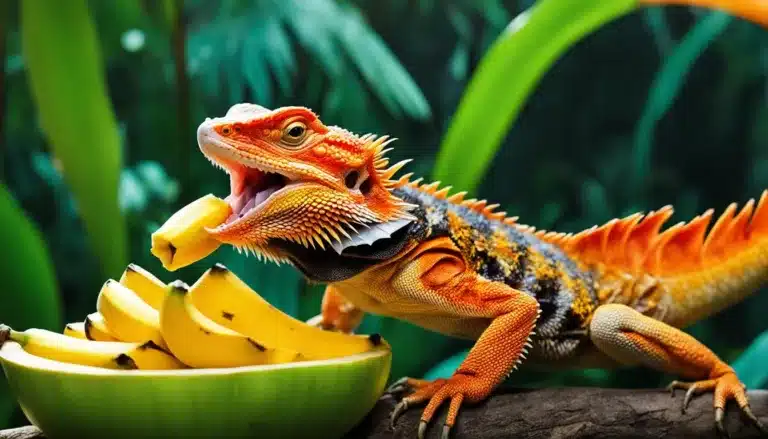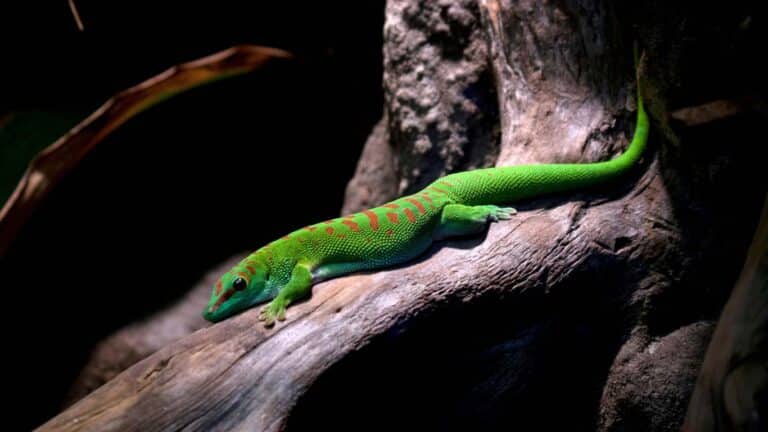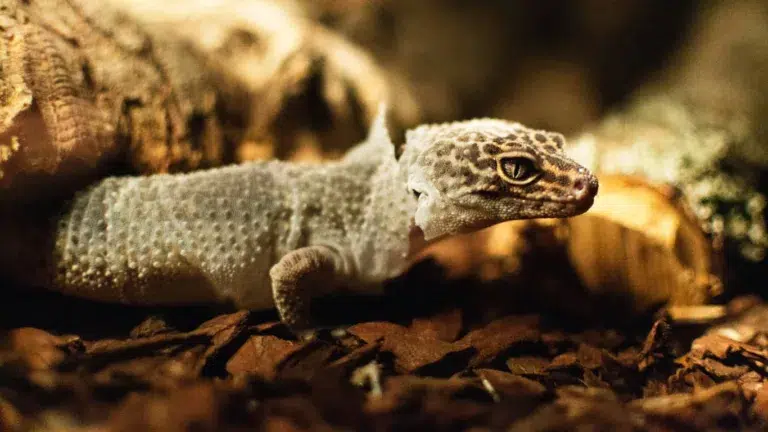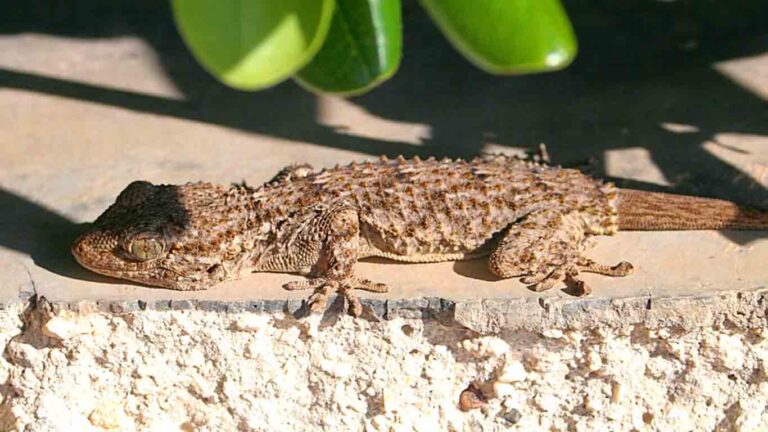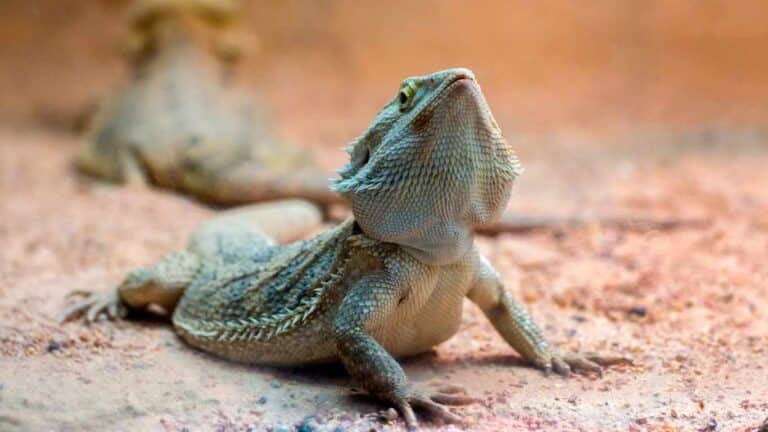Do Bearded Dragons Hibernate?” is a common question among owners of these fascinating reptiles, known for their unique appearance and captivating personalities. Bearded dragons have gained popularity as pets in recent years. As winter approaches, you may have heard about the concept of hibernation and wondered if bearded dragons engage in this behavior. In this article, we will explore the truth behind bearded dragons and hibernation, shedding light on their winter behavior and debunking any misconceptions.
Dragon Discoveries:
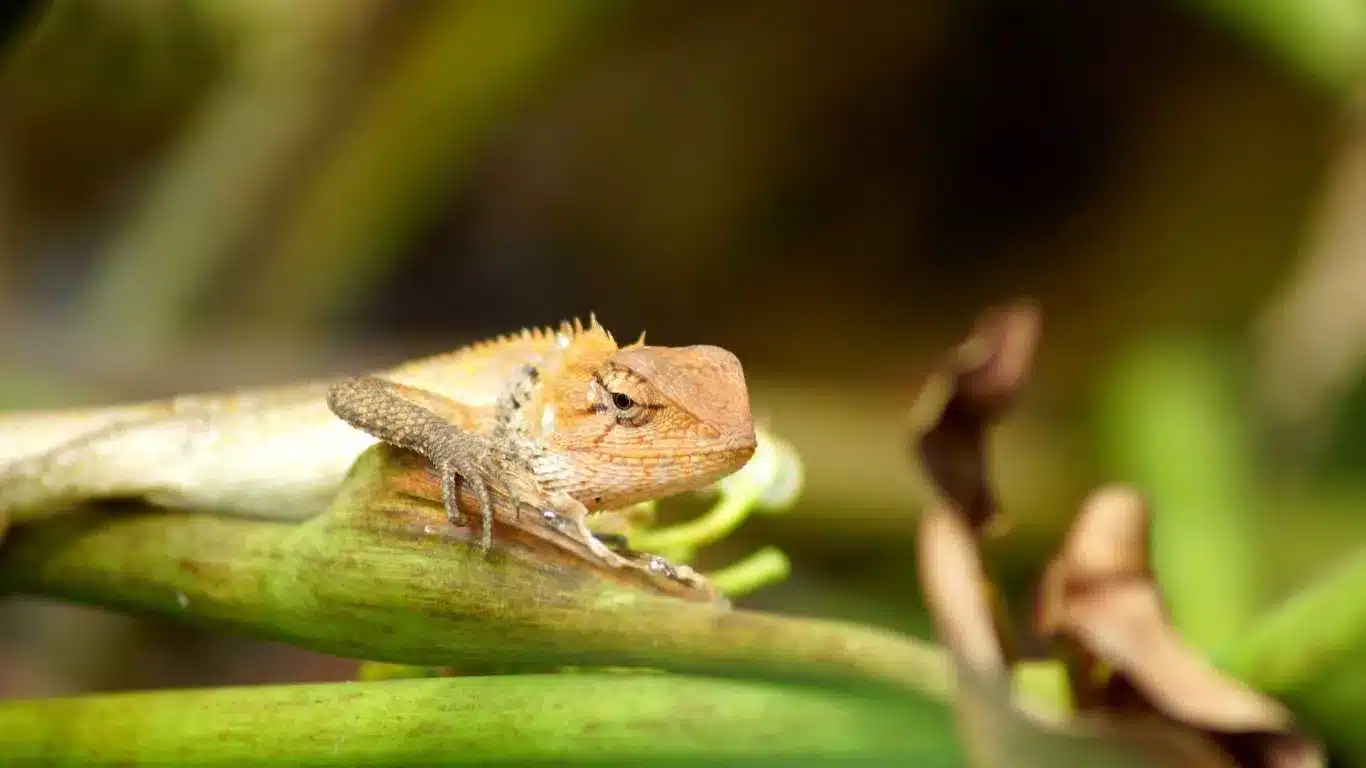
What is Brumation and Why Do Bearded Dragons Do It?
Brumation is a dormancy state that bearded dragons enter during the cooler months, akin to the concept of ‘Do Bearded Dragons Hibernate.’ It is similar to hibernation in mammals. ‘Do Bearded Dragons Hibernate’ is a common query that relates to how in the wild, bearded dragons brumate to conserve energy and wait for warmer days. In captivity, many bearded dragons may also go through brumation, prompting the question ‘Do Bearded Dragons Hibernate.’ This process is instinctual and can benefit their overall health and lifespan.
During brumation, bearded dragons slow down their metabolic processes, including eating and moving around. It helps them conserve energy and cope with the limited food and plant resources available during winter. This natural process allows bearded dragons to survive in their natural habitats, where food may be scarce during colder periods, leading to the inquiry ‘Do Bearded Dragons Hibernate.’
Brumation differs from true hibernation because bearded dragons may occasionally wake up and become active for short periods before returning to their dormant state. However, their activity levels and metabolism significantly decrease during brumation.
While brumation is a natural process, not all bearded dragons go through it. Some individuals, especially those kept as pets in controlled environments, may not experience brumation at all. The occurrence and duration of brumation can vary among bearded dragons, depending on factors such as age, health, and environmental conditions.
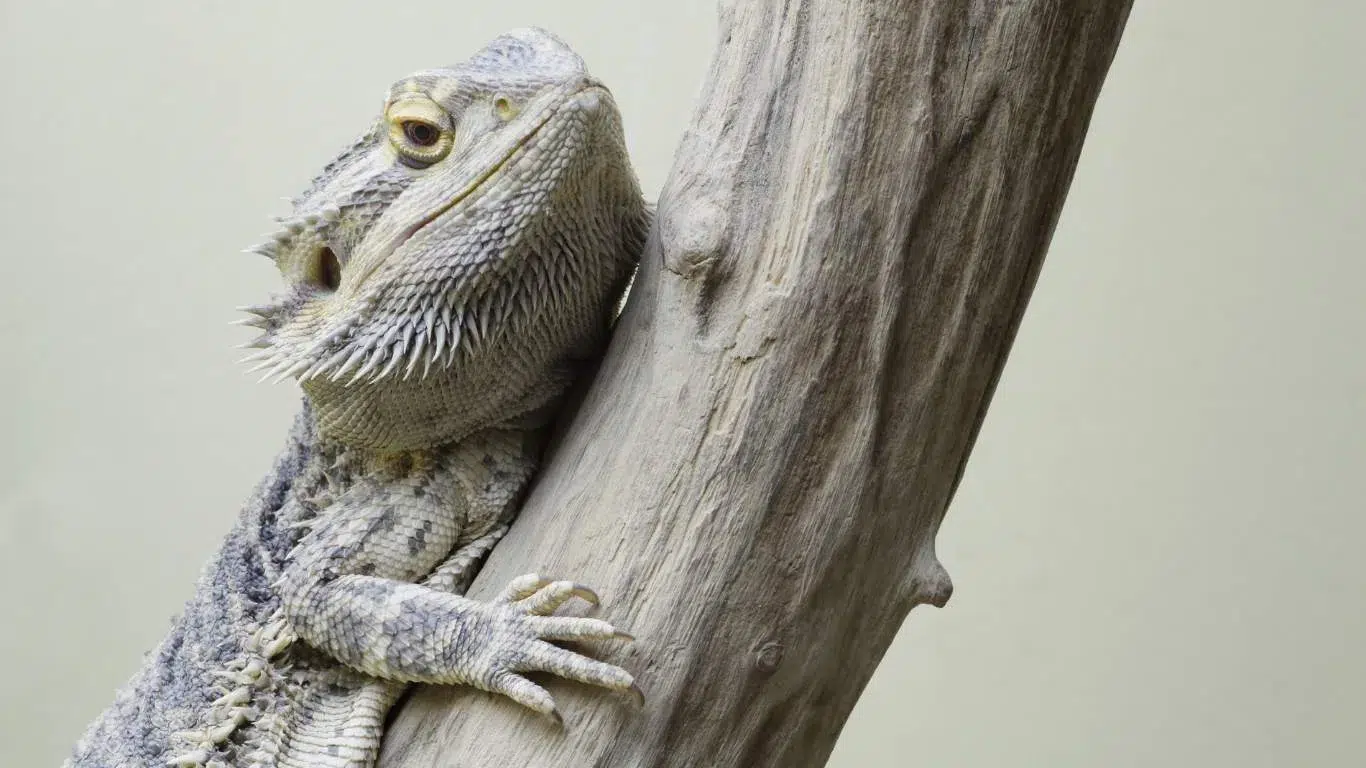
Understanding brumation and providing proper care during this time is essential for the well-being of bearded dragons. It is crucial to replicate the natural seasonal changes in their habitat, adjusting lighting and temperature to mimic cooler conditions. Additionally, maintaining a stable and stress-free environment can support their natural brumation cycle.
Brumation is a necessary process for bearded dragons, allowing them to conserve energy, cope with environmental changes, and ensure their long-term health and vitality.
Benefits of Brumation for Bearded Dragons
Brumation offers several benefits for bearded dragons:
- Nutritional Conservation: By reducing their activity levels and metabolism, bearded dragons conserve their fat reserves and survive on limited food resources.
- Survival Adaptation: Brumation is an instinctual behavior that helps bearded dragons adapt to winter conditions in the wild, where food and plant life may be scarce.
- Enhanced Lifespan: Allowing bearded dragons to go through brumation can promote their overall health, strengthen their immune system, and potentially contribute to a longer lifespan.
Understanding why bearded dragons brumate and providing them with the appropriate care during this natural process is crucial for their well-being and ensures they thrive in captivity.
Signs of a Bearded Dragon Going into Brumation
When a bearded dragon is preparing to enter brumation, there are several noticeable signs to look out for. Understanding these signs will help you differentiate between normal behavior and a potential health issue. Here are some common indications that your bearded dragon is entering the brumation phase:
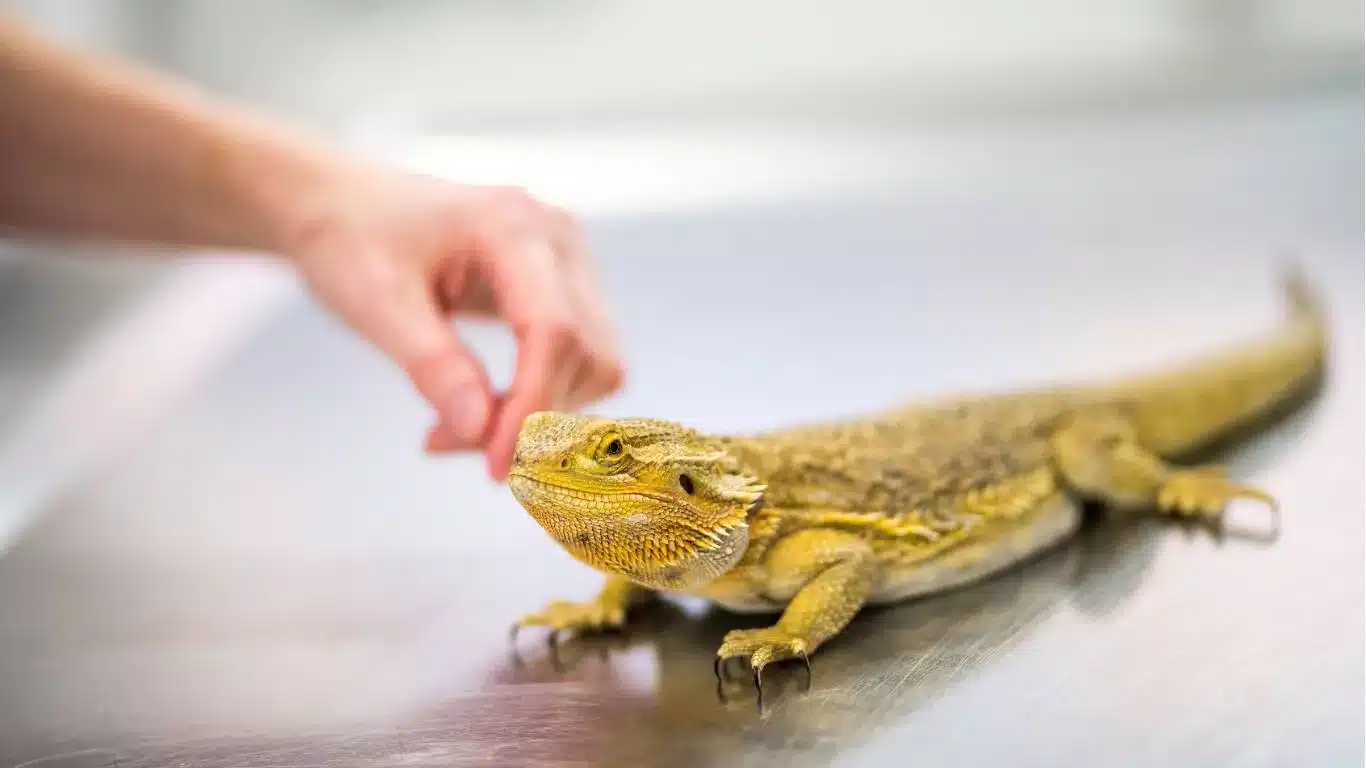
- Sleeping more: Bearded dragons will start to spend longer periods of time sleeping or in a state of low activity. This is their way of conserving energy during the winter months.
- Decreased appetite: You may notice a significant decrease in your bearded dragon’s appetite. They will eat less or even refuse food altogether. This is normal during brumation and should not cause alarm.
- Going to sleep earlier: Bearded dragons may adjust their sleeping patterns and begin to go to sleep earlier in the evening. This shift in behavior is a natural response to the changing seasons.
- Hiding in the shade: Instead of basking under their heat lamps, bearded dragons may seek out cooler areas of their enclosure, such as hiding spots or shaded areas. This is a way for them to regulate their body temperature and prepare for brumation.
- Reduced frequency of bowel movements: As bearded dragons reduce their food intake, it is expected that their bowel movements will become less frequent. This is a normal part of the brumation process.
It is important to note that these behavioral changes are typical signs of brumation and should not be a cause for concern. However, if you notice any additional or concerning symptoms, it is recommended to consult a veterinarian. They can rule out any underlying health issues and provide appropriate guidance for your bearded dragon’s care.
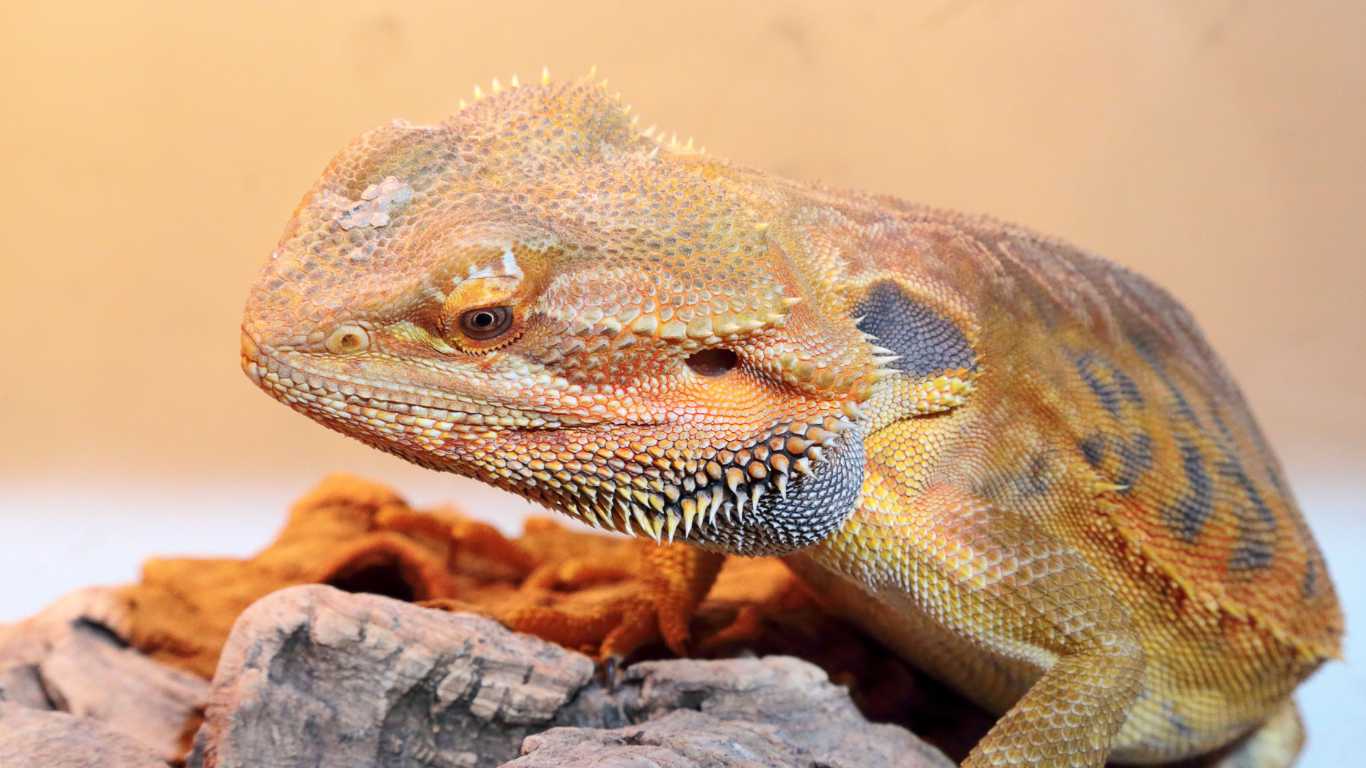
Age and Timing of Brumation in Bearded Dragons
Brumation, a hibernation-like state, can occur in bearded dragons of any age, although it is more common in adult dragons. The timing of brumation can vary, but it often starts in late fall or early winter when the days become shorter and cooler. Young bearded dragons may not typically attempt to brumate due to their need for frequent meals and limited fat reserves.
Brumation in Adult Bearded Dragons
Adult bearded dragons are more likely to enter brumation due to their mature age and ability to conserve energy. As the days get shorter and the temperature drops, their instinctual behavior triggers brumation to prepare for a period of minimal activity and reduced metabolism.
Timing of Brumation
The specific timing of brumation can vary among bearded dragons. It commonly begins in late fall or early winter when environmental conditions start resembling their natural habitat’s seasonal changes. The decreasing daylight hours and cooler temperatures serve as triggers for the initiation of brumation.
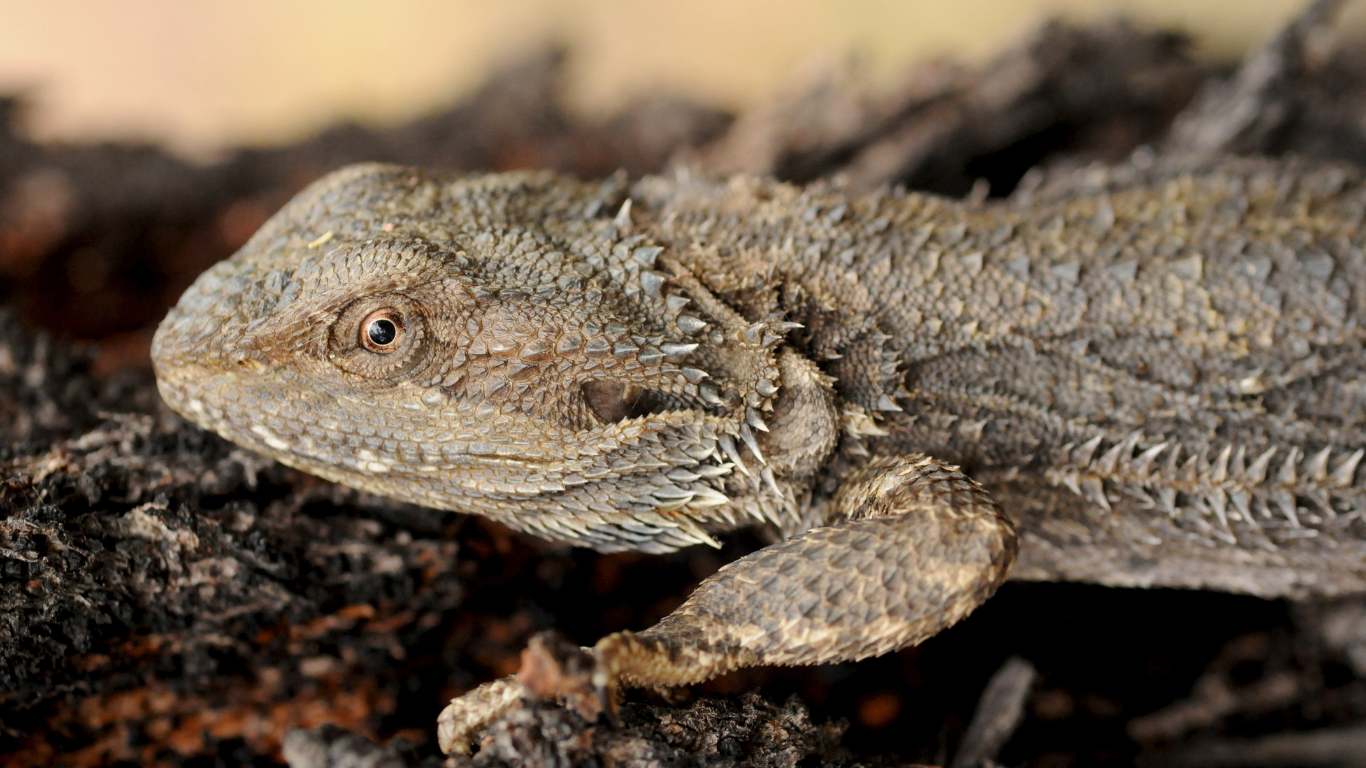
During this time, bearded dragons may gradually reduce their activity levels and show signs of preparing for brumation. It is essential to monitor their behavior and understand the specific timing patterns exhibited by individual dragons.
Brumation and Young Bearded Dragons
Young bearded dragons, especially hatchlings and juveniles, may not enter brumation as frequently as adult dragons. This is primarily because they are still in a growth phase and require regular meals to meet their nutritional needs. Additionally, their fat reserves may not be sufficient to sustain them through an extended period of reduced activity.
While young bearded dragons may not brumate as commonly as adults, some may still exhibit temporary periods of decreased activity and diminished appetite. These periods are not the same as brumation but can be related to their growth and changing environmental conditions.
Age and Timing of Brumation in Bearded Dragons
| Age | Timing of Brumation |
|---|---|
| Adult | Late fall or early winter when the days become shorter and cooler |
| Young | Less common due to the need for frequent meals and limited fat reserves |
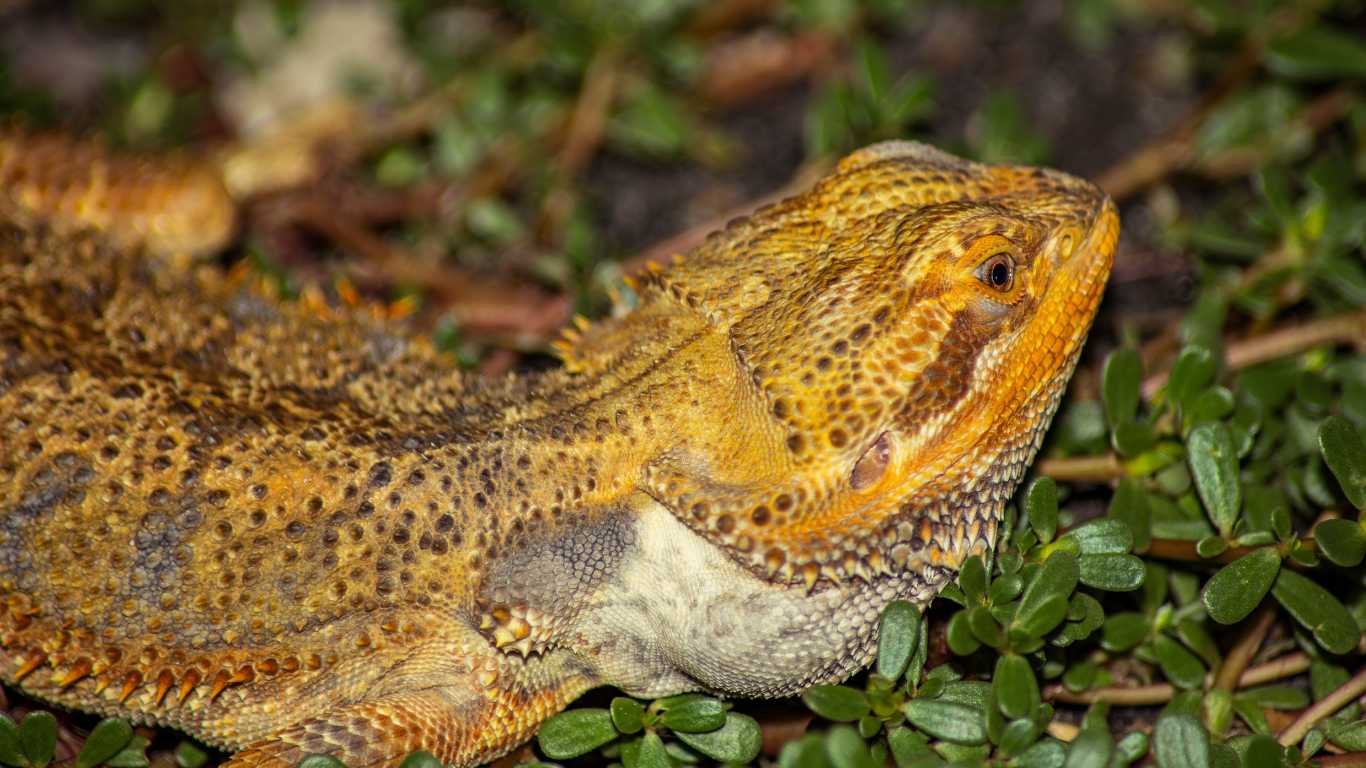
How Long Does Brumation Last?
The duration of brumation can vary among bearded dragons. Some may brumate for a few weeks, while others may brumate for several months. It is important to respect their natural process and not disturb them during this time. Bearded dragons may lose some weight during brumation, but significant weight loss could indicate an underlying health issue.
Brumation is a crucial period for bearded dragons to conserve energy and ensure their well-being. During this time, they undergo a slowdown in their metabolic activities, reducing their need for food and movement. The duration of brumation depends on various factors, including the dragon’s age, health, and environmental conditions.
Just like hibernation, brumation is a natural behavior for bearded dragons that helps them survive in challenging winter conditions. It allows them to conserve energy and wait for warmer days when food and resources become more abundant.
It is essential to understand that the duration of brumation can vary for each individual bearded dragon. Some may enter brumation for several weeks, while others may remain in this state for several months. Generally, adult bearded dragons tend to have longer brumation periods compared to younger dragons.
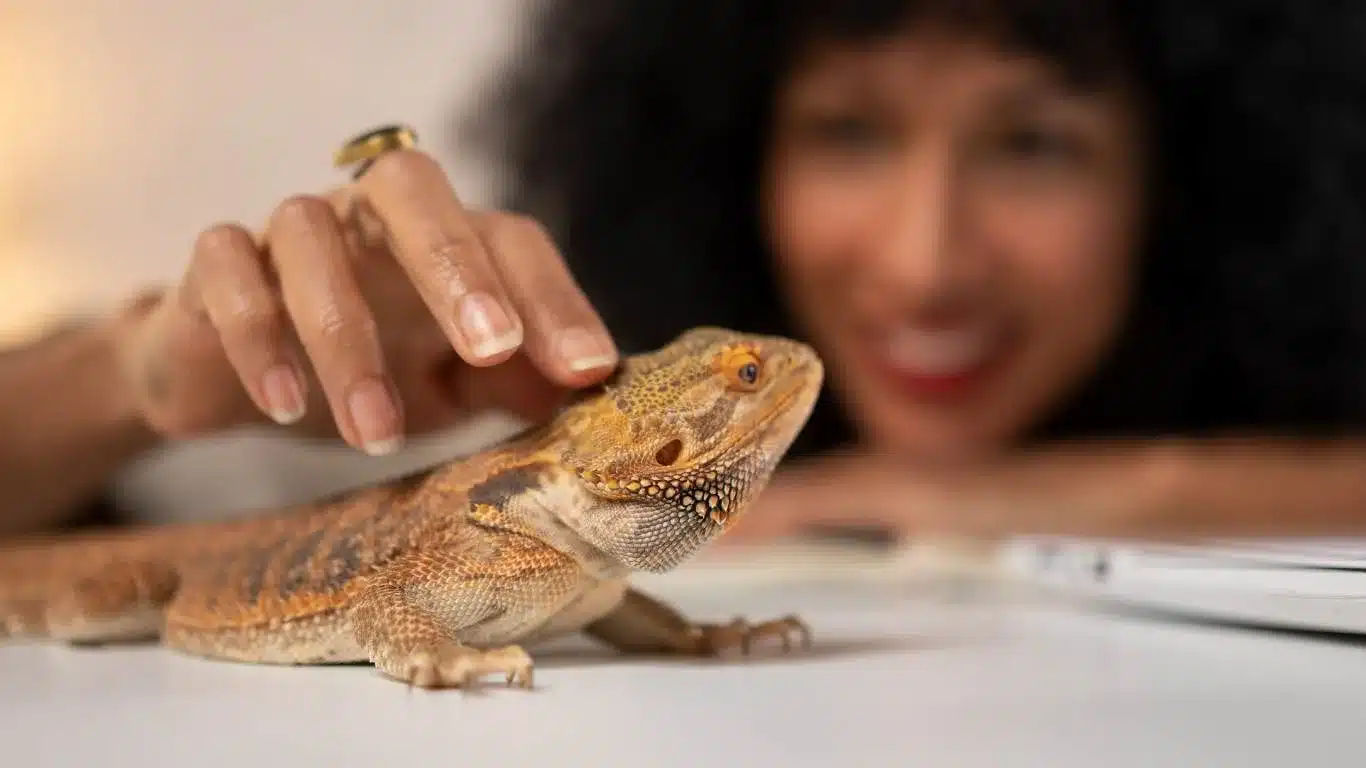
Factors Affecting Brumation Duration:
- Age: Adult bearded dragons are more likely to brumate for an extended period compared to younger dragons.
- Health: Bearded dragons that are in good health and have sufficient fat reserves may brumate for a longer duration.
- Environmental Conditions: The duration of brumation is influenced by the changing external conditions, such as temperature and daylight hours. Cooler temperatures and shorter daylight periods can trigger and prolong brumation.
- Individual Variations: Each bearded dragon is unique, and their biological rhythm and response to brumation may differ.
During brumation, it is important to monitor your bearded dragon’s weight and overall health. While some weight loss is expected, significant or rapid weight loss could be a sign of an underlying health issue. If you notice any concerning symptoms or if the brumation period exceeds what is considered normal, it is recommended to consult a reptile veterinarian for further evaluation and guidance.
Remember, patience is key during brumation. Allow your bearded dragon to naturally complete this process and provide a comfortable, stress-free environment. Avoid handling or disturbing them excessively to prevent unnecessary stress. Once they start showing signs of emerging from brumation, gradually reintroduce regular lighting and temperature conditions while closely monitoring their behavior and health.
Brumation Duration in Different Bearded Dragon Age Groups
| Age Group | Average Brumation Duration |
|---|---|
| Less than 1 year (Juvenile) | Varies, generally no brumation observed |
| 1-3 years (Young Adult) | 2-6 weeks |
| 3-7 years (Adult) | 2-4 months |
| 7+ years (Senior) | 4-6 months |
Understanding the duration of brumation in bearded dragons is important for their well-being and care. Respect their natural instincts and provide a suitable environment for a successful brumation period. Consult a reptile veterinarian if you have any concerns or questions about your bearded dragon’s brumation behavior.
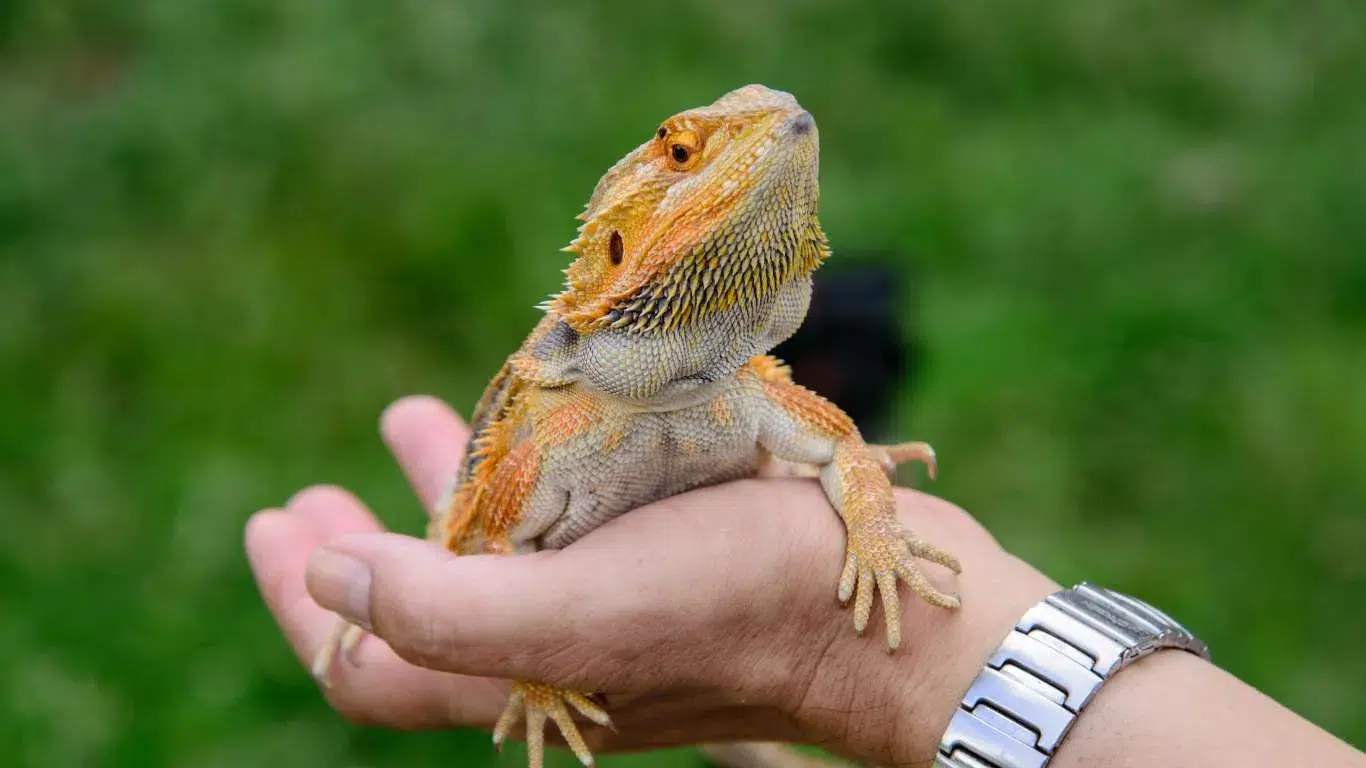
Care for a Bearded Dragon During Brumation
During brumation, it is important to provide proper care for your bearded dragon to ensure their well-being. Understanding their needs and adjusting their environment accordingly is crucial. Here are some essential aspects to consider:
Lighting and Temperature
Adjusting the lighting and temperature in the enclosure is crucial during brumation. Bearded dragons need to experience natural seasonal changes even while in a dormant state. To mimic this, you can reduce the overall light cycle and lower the basking temperature. This will help create a more realistic environment for your bearded dragon during brumation.
Feeding
During brumation, bearded dragons may not have a significant appetite. They naturally reduce their food intake during this time. However, it is still essential to offer small, appropriate amounts of food. This ensures that they receive necessary nutrients while not overfeeding them. Remember, their digestive system slows down during brumation, so be cautious about the quantity and type of food you provide.
Water
Although bearded dragons may not drink as frequently during brumation, a process also known as ‘Do Bearded Dragons Hibernate’, access to water should still be provided. Keep a shallow dish of fresh water available in their enclosure. It is essential to monitor the water level regularly and ensure it remains clean for their hydration needs during this ‘Do Bearded Dragons Hibernate’ period.
It is important to note that each bearded dragon is unique, and their brumation experience, or ‘Do Bearded Dragons Hibernate’ phase, may vary. Some may prefer to sleep longer and eat less, while others may awaken occasionally and engage in minimal activity. Allow your bearded dragon to wake up naturally and respect their natural brumation patterns.
Once your bearded dragon begins to show signs of emerging from brumation, gradually reintroduce normal conditions in their enclosure. Bring back the regular light cycle, raise the basking temperature, and resume their regular feeding routine. Pay close attention to their behavior and consult a veterinarian if you notice any significant changes that may indicate underlying health issues.
Providing appropriate care during brumation ensures the well-being of your bearded dragon and supports their overall health. By mimicking natural conditions, adjusting lighting and temperature, providing proper food and water, you can help your bearded dragon navigate through the ‘Do Bearded Dragons Hibernate’ phase successfully.
| Aspect | Recommendations |
|---|---|
| Lighting and Temperature | Reduce overall light cycle Lower basking temperature |
| Feeding | Offer small amounts of food Ensure a balanced diet |
| Water | Provide access to clean, fresh water |
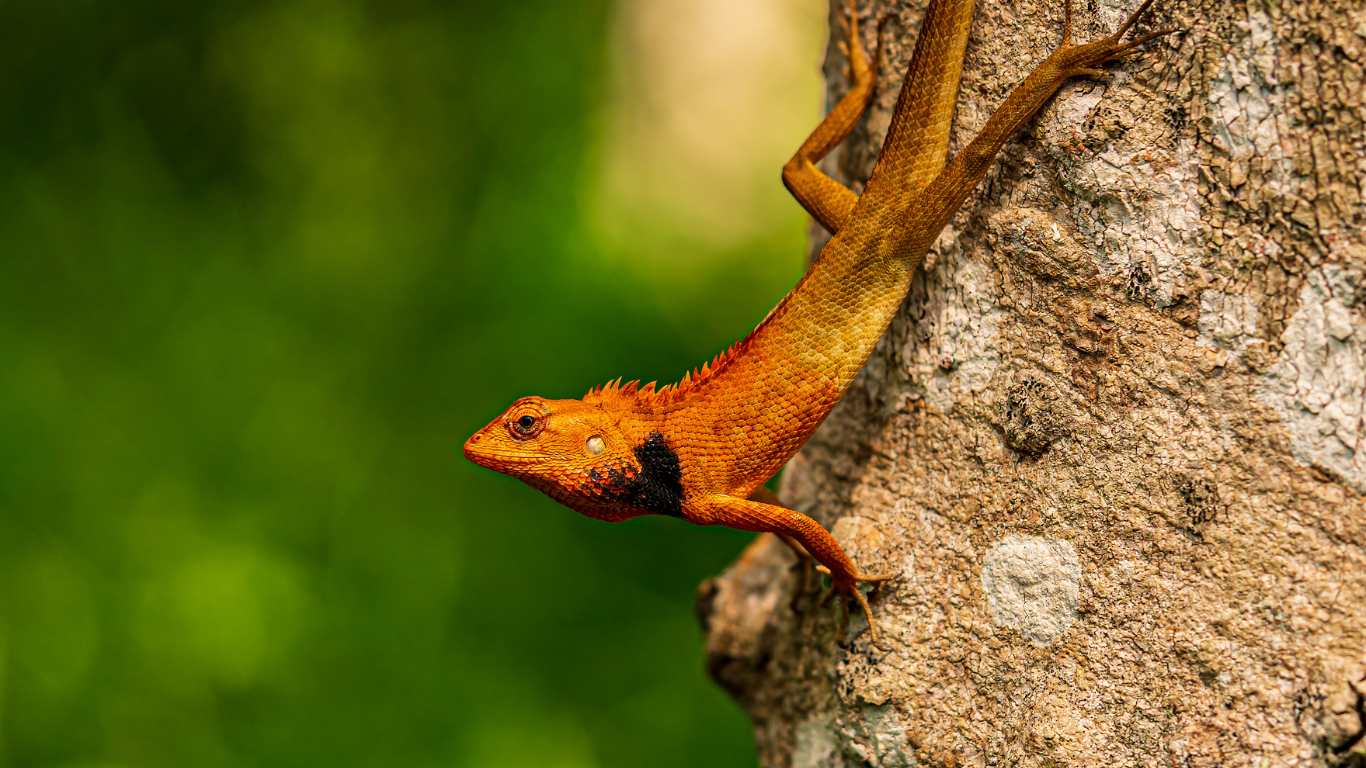
Behavior and Communication of Bearded Dragons
Bearded dragons are fascinating creatures that possess unique behaviors and modes of communication. By understanding their behavior, you can develop a deeper connection with your bearded dragon and provide the care they need to thrive.
Territorial Behavior
Bearded dragons can exhibit territorial behavior, especially when it comes to defending their territory or competing for mates. This behavior is instinctual and is often seen in both wild and captive dragons.
When a bearded dragon feels threatened or senses another dragon encroaching on its territory, it may display signs of aggression. One notable behavior is the puffing out and darkening of their beard, which is used as a visual warning to deter potential threats.
Communication Signals
Bearded dragons use a variety of communication signals to express their needs and emotions. These signals can include physical movements and displays that convey important messages to other dragons.
Head bobbing is a common behavior observed in bearded dragons and is often used to communicate dominance or submission. Males typically engage in head bobbing to establish dominance or to attract a mate. On the other hand, females may use head bobbing as a submissive gesture during courtship or when facing a more dominant dragon.
Arm waving is another fascinating behavior displayed by bearded dragons. This behavior is often observed when they are feeling threatened or trying to establish dominance. It can also serve as a way to communicate submission or appeasement.
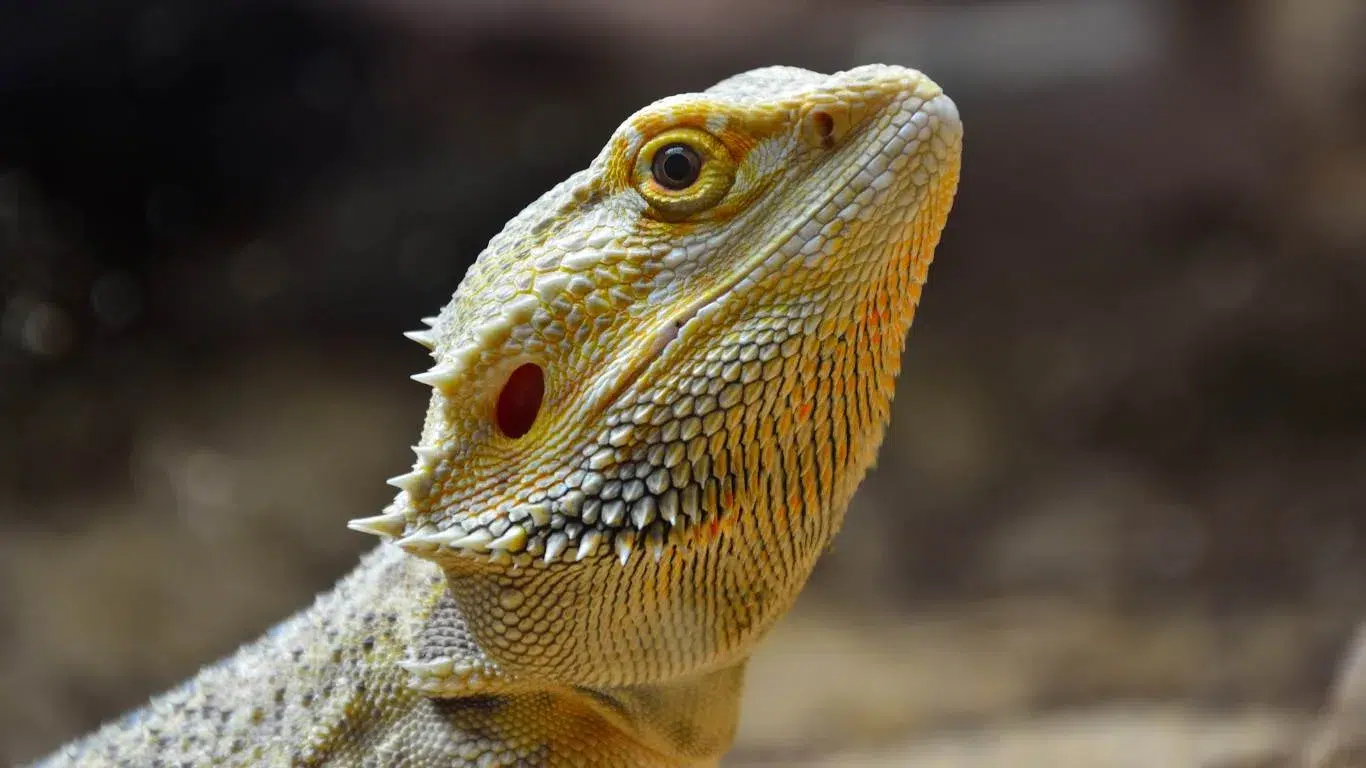
Understanding Their Needs
By observing and understanding the behavior and communication signals of your bearded dragon, you can better meet their needs and ensure their well-being. Paying attention to their body language, including their posture and movements, can give you valuable insights into their current state and emotions.
Creating a comfortable and enriched habitat, providing a balanced diet, and responding to their behaviors appropriately can contribute to their overall happiness and health.
| Behavior | Communication Signal |
|---|---|
| Head bobbing | Communication of dominance or submission |
| Arm waving | Sign of threat or establishment of dominance |
| Beard puffing | Visual warning to deter potential threats |
Habitat and Diet of Bearded Dragons
Bearded dragons, native to Australia, thrive in warm, arid habitats like deserts and woodlands. Their natural habitat allows them to bask in the sun, raising their body temperature to optimal levels for their well-being. As desert-dwellers, they have adapted to survive in arid conditions, relying on sunlight and heat for energy. A common question about their adaptation to these environments is “Do Bearded Dragons Hibernate?” – a topic that is often explored by enthusiasts and experts alike.
When it comes to their diet, bearded dragons are omnivores, meaning they consume both animal matter and plant material. Their diet primarily consists of insects, such as crickets, roaches, and mealworms, which provide essential proteins. They also enjoy leafy greens, vegetables, and fruits, which contribute to their overall nutrition and hydration. Understanding their dietary needs is crucial, especially considering seasonal changes where one might wonder, “Do Bearded Dragons Hibernate?” and how this affects their eating habits.
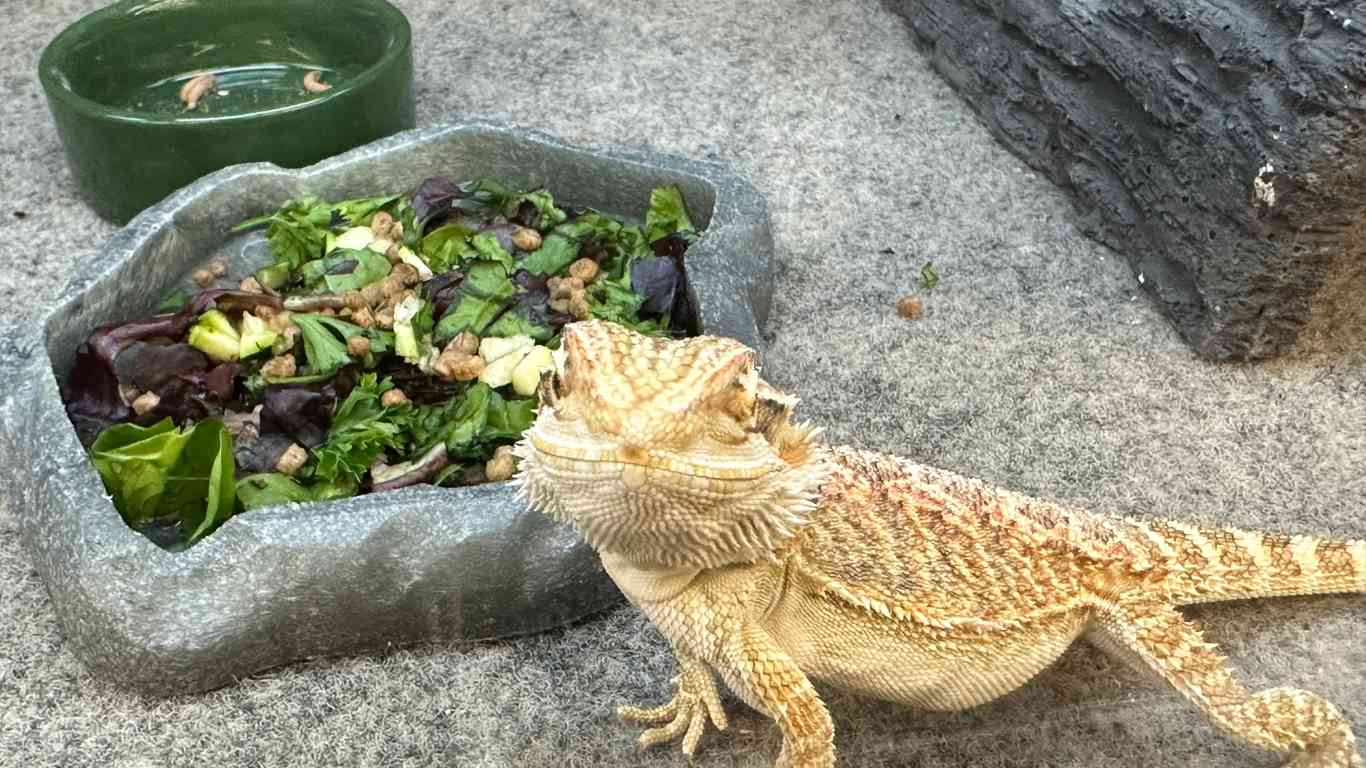
Providing a suitable habitat is vital for the health and happiness of your bearded dragon. Ensure that their enclosure mimics their natural habitat as closely as possible. This includes providing a basking area with a heat source, such as a heat lamp or ceramic heat emitter. Additionally, a UVB light should be included to support their calcium metabolism and overall well-being. It’s important to consider their seasonal behaviors, like whether “Do Bearded Dragons Hibernate?”, to adjust their habitat accordingly.
It’s crucial to maintain a balanced diet for your bearded dragon. This includes offering a variety of insects and an assortment of nutrient-rich greens, vegetables, and fruits. This diversity ensures they receive all the necessary vitamins, minerals, and nutrients they need to thrive. Remember, a well-maintained habitat and a balanced diet are essential components of caring for your bearded dragon. By creating a suitable environment and offering a varied diet, you can provide them with a happy and healthy life.
Common Foods for Bearded Dragons
| Insects | Greens and Vegetables | Fruits |
|---|---|---|
| Crickets | Collard greens | Blueberries |
| Roaches | Mustard greens | Strawberries |
| Mealworms | Dandelion greens | Mango |
| Waxworms | Endive | Papaya |
Courtship and Reproduction in Bearded Dragons
When it comes to courtship, male bearded dragons go all out to attract their potential mates. They engage in elaborate rituals that involve head bobbing, arm waving, and even biting the female’s neck during mating. These behaviors are fascinating to witness and are an integral part of the bearded dragon’s courtship process.
Female bearded dragons, on the other hand, have a reproductive advantage – they can store sperm. This unique ability allows them to lay multiple clutches of eggs from a single mating. It’s an incredible adaptation that ensures the continuation of the species even with infrequent mating opportunities.
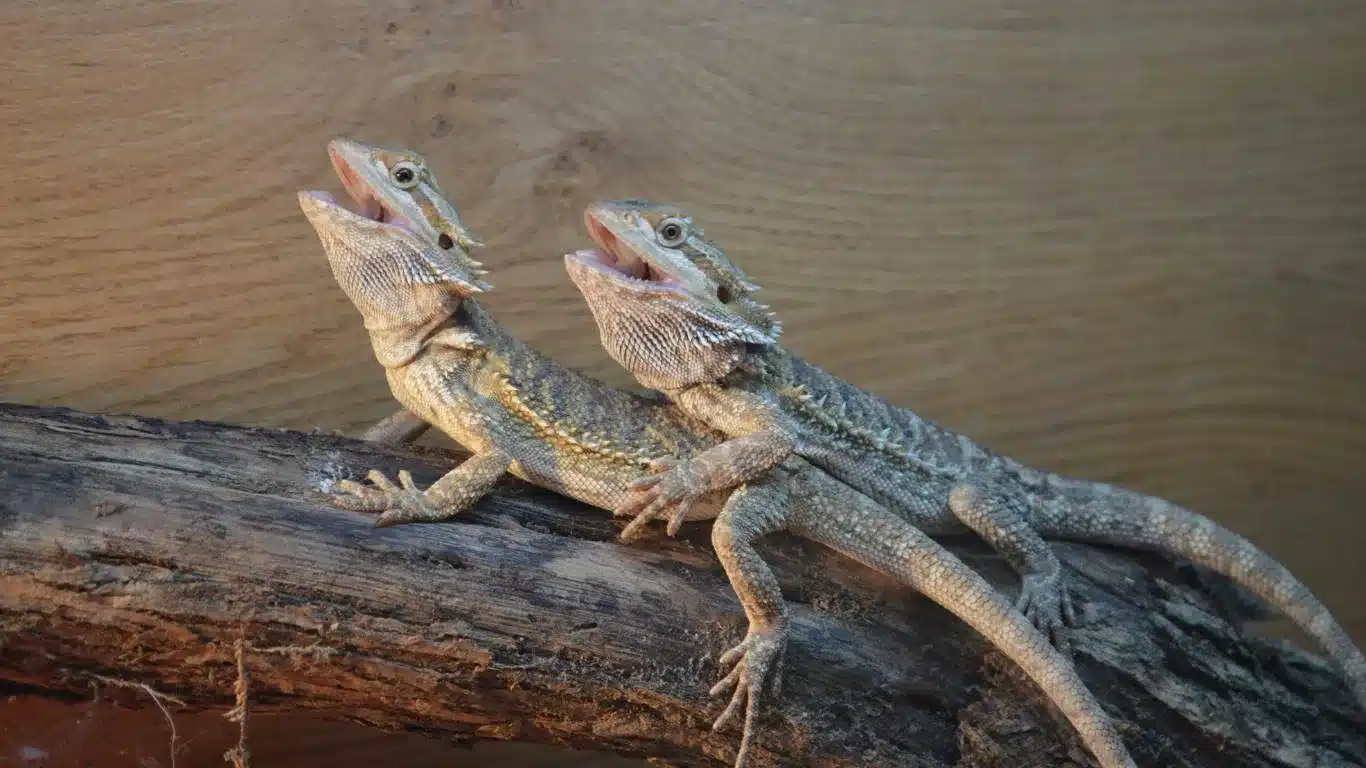
Interestingly, the sex of the bearded dragon embryos can be influenced by the incubation temperature. Higher temperatures during incubation tend to produce more males, while lower temperatures result in more females. This temperature-dependent sex determination adds another layer of complexity to the reproductive biology of bearded dragons.
| Male Bearded Dragon Courtship Behaviors | Female Bearded Dragon Reproductive Abilities | Temperature-Dependent Sex Determination |
|---|---|---|
| Head bobbing | Sperm storage | Sex influenced by incubation temperature |
| Arm waving | Multiple clutches of eggs | Higher temperatures: more males |
| Neck biting during mating | Lower temperatures: more females |
Understanding the courtship and reproductive behaviors of bearded dragons is not only fascinating but also essential for their proper care and breeding. By providing an environment that allows for natural courtship and ensuring suitable incubation temperatures, bearded dragon enthusiasts can contribute to the preservation and well-being of these amazing reptiles.
Bearded Dragon Health during Brumation
During brumation, bearded dragons generally maintain good overall health. It is normal for them to experience slight weight loss, but as long as it is not excessive, there is no cause for concern. Brumation is a natural process that allows bearded dragons to conserve energy and adapt to the changing seasons.
However, it is important to monitor the health of your bearded dragon during brumation. If you notice any signs of illness, such as a black beard or significant weight loss, it is crucial to consult a veterinarian. These symptoms could indicate an underlying health issue that requires proper diagnosis and treatment.
Regular veterinary check-ups are essential for ensuring the well-being of your bearded dragon. Your veterinarian can provide guidance on how to best care for your dragon during brumation and address any specific health concerns.
Remember, it is always better to be proactive and seek professional advice if you have any concerns about your bearded dragon’s health. With proper care and attention, your dragon can successfully navigate through the brumation period and emerge healthy and ready for the warmer months.
Join the Pet Planet Diaries
Sign up for our newsletter to get the latest tips, stories, and exclusive insights into the wonderful world of pets.
Final Remarks
Bearded dragons, like many reptiles, undergo a fascinating natural process called brumation during the colder months. This hibernation-like state helps them conserve energy when food and plant life are scarce. While not all bearded dragons brumate, it is important for owners to be aware of the signs and provide proper care during this time.
Monitoring the health of your bearded dragon is crucial during brumation. Although slight weight loss is normal, significant weight loss or other signs of illness should be addressed by consulting a veterinarian. By understanding the natural behavior of brumation and being proactive in their care, you can ensure the well-being of your bearded dragon.
Remember, brumation is an instinctual behavior that allows these unique creatures to thrive in their natural environment. By providing a suitable habitat, adjusting lighting and temperature, and offering proper nutrition, you can support your bearded dragon’s overall health and longevity. Embracing their natural instincts, including hibernation-like brumation, is an essential part of being a responsible and caring bearded dragon owner.
FAQ
Do bearded dragons hibernate?
No, bearded dragons do not hibernate. They go through a hibernation-like state called brumation, which is a natural process that helps them conserve energy during the colder months.
What is brumation and why do bearded dragons do it?
Brumation is a dormancy state that bearded dragons enter during the cooler months. It is similar to hibernation in mammals. Bearded dragons do it to conserve energy and wait for warmer days when food and plant life are more abundant.
What are the signs of a bearded dragon going into brumation?
Some signs that indicate a bearded dragon is entering brumation include sleeping more, decreased appetite, going to sleep earlier, hiding in the shade, and reduced frequency of bowel movements. These behavioral changes are natural and should not be a cause for concern.
At what age and when do bearded dragons typically go through brumation?
Brumation can occur in bearded dragons of any age, but it is more common in adult dragons. It usually starts in late fall or early winter when the days become shorter and cooler. Young dragons may not typically attempt to brumate due to their need for frequent meals and limited fat reserves.
How long does brumation last?
The duration of brumation can vary among bearded dragons. Some may brumate for a few weeks, while others may brumate for several months. It is important to respect their natural process and not disturb them during this time.
How should I care for my bearded dragon during brumation?
During brumation, it is important to adjust the lighting and temperature in the enclosure to mimic the natural seasonal changes. The overall light cycle can be reduced, and the basking temperature can be lowered. Bearded dragons may not eat much during this time, so offering small amounts of food is sufficient. Access to water should still be provided, although they may not drink as frequently.
How do bearded dragons communicate?
Bearded dragons communicate through various behaviors and physical signals. They can become territorial and use their beards, head bobbing, and arm waving to communicate with other dragons. Understanding their behavior can help you interpret their needs and emotions.
What are the preferred habitat and diet of bearded dragons?
Bearded dragons are native to Australia and prefer warm, arid habitats such as deserts and woodlands. They are well-adapted to basking in the sun to raise their body temperature. Bearded dragons are omnivores and eat a variety of insects, plants, and occasionally small lizards or rodents.
How do bearded dragons court and reproduce?
Male bearded dragons perform elaborate courtship rituals to attract females, including head bobbing, arm waving, and biting the female’s neck during mating. Female bearded dragons have the ability to store sperm, allowing them to lay multiple clutches of eggs from a single mating. The sex of the embryos can be influenced by incubation temperature.
How is a bearded dragon’s health during brumation?
Bearded dragons generally maintain good health during brumation. They may experience slight weight loss, which is normal as long as it is not excessive. However, if a bearded dragon shows signs of illness, such as a black beard or significant weight loss, it is important to consult a veterinarian for proper diagnosis and treatment.
Can you provide a brief conclusion about bearded dragons and hibernation?
Bearded dragons naturally go through a hibernation-like state called brumation during the cooler months. It is a instinctual behavior that helps them conserve energy. By understanding the signs and properly caring for bearded dragons during brumation, owners can ensure their well-being.

